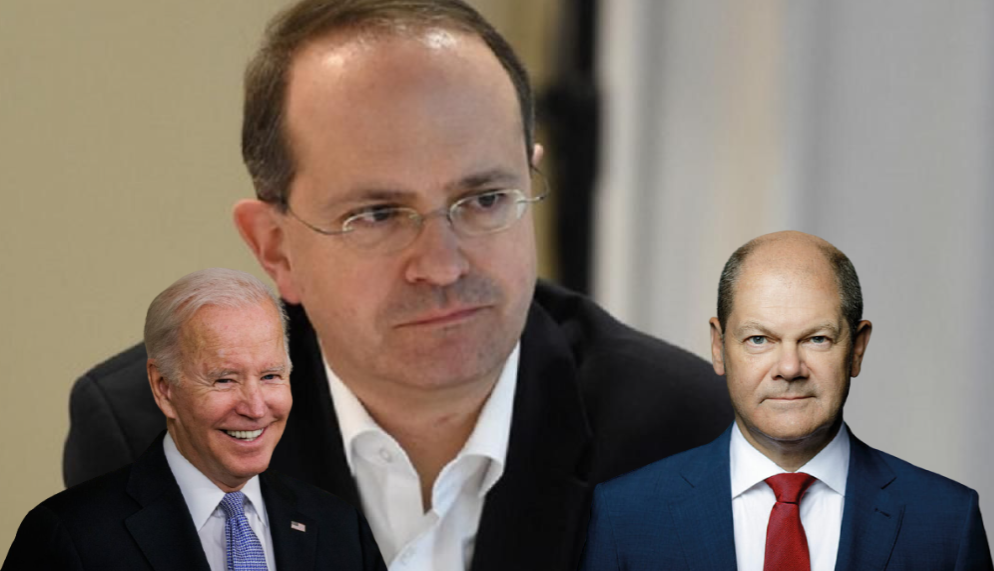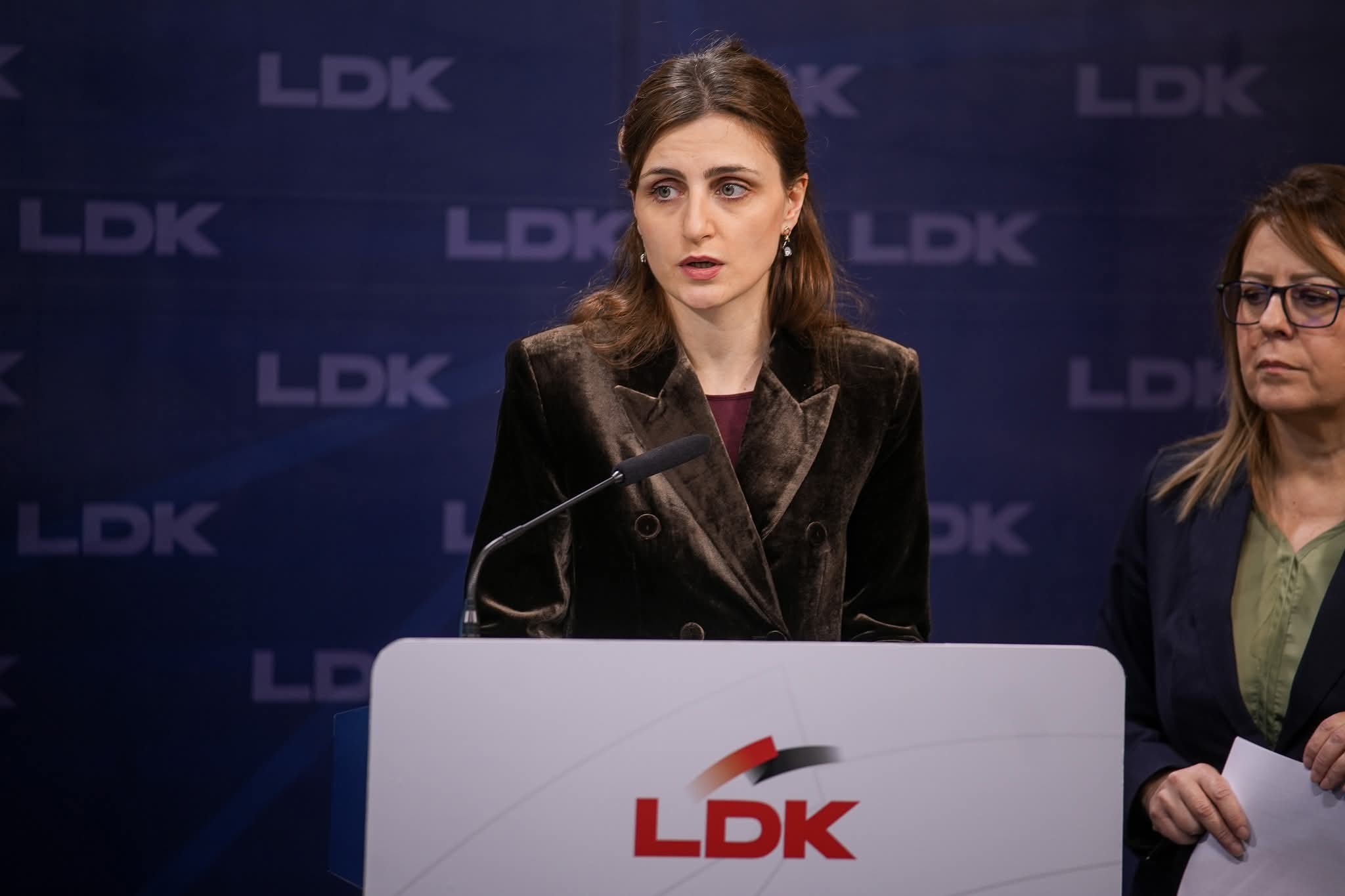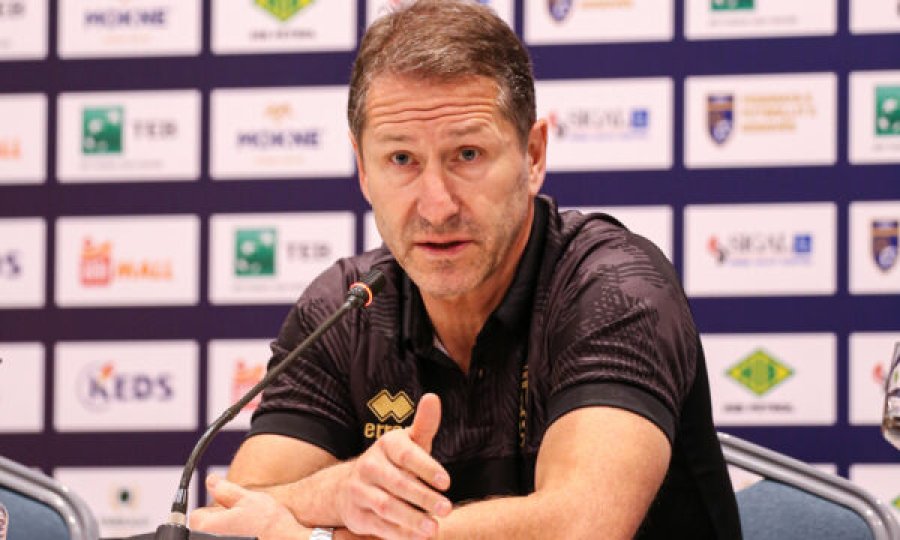Weber expects more involvement from Biden Administration and new German Chancellery towards Kosovo-Serbia dialogue
Bodo Weber, a German expert on developments in the Western Balkans, in an interview with lajmi.net, spoke about how he sees the new German perspective as a result of the new chancellery towards the Western Balkans, as well as the fate of the Kosovo-Serbia for the next year.

English
Weber, also elaborated on the new role that Germany can play in improving the situation in the Western Balkans in general, as well as restoring the original format of a dialogue between Kosovo and Serbia. This, according to him, should be done in permanent coordination with the US.
The German expert also discussed the political situation in Bosnia, according to which it could legitimize the formation of the Association of Serb-majority Municipalities and destabilize the Western Balkans.
The expert on the political circumstances in the Western Balkans is also afraid of repeating the scenes that took place in the north over the past year to demonstrate the political and military power of Kosovo and Serbia. This is because, according to him, the Kurti Government has proclaimed the rule of law in their governing program and, as he points out, the north is more than that in terms of corrupt schemes.
The member of the Policy Council for Democratization (DPC), has expressed disappointment at the Biden Administration for the approach towards Kosovo-Serbia dialogue, justifying such a thing due to the slow transfer of power from the Trump Administration.
Full Interview:
Lajmi.net: “Let’s dare to make more progress” is the slogan with which the new German chancellery began to govern. They have even dared to make progressive promises to the Western Balkans, including Kosovo. Will they dare enough to put pressure on the five non-recognizing countries of Kosovo to vote in favor of visa liberalization?
Bodo Weber: Yes, the new ruling coalition in its coalition agreement makes a very strong commitment to the integration of the Western Balkans into the EU, and to solve all outstanding issues, including such that have been blocked over the last couple of years, like finally granting visa liberalization to Kosovo, which is long overdue. Thus, I expect Berlin next year to strongly advocate for the EU to finally give green light to Kosovo. However, on visa liberalization, like on most other issues regarding a progressive, pro-active role of the Union towards the region, the main blocking actor is France, President Macron. Given the fact that we have presidential elections scheduled for April next year, I expect German pressure to be delayed until after the elections – and before the end of France’s EU presidency mid-2022. This all assuming that Emanuel Macron will win the elections.
Lajmi.net: What do you think will be Germany’s role in the Kosovo-Serbia dialogue and will there be more direct involvement? Given that Kosovo’s new ambassador to Germany, Faruk Ajeti, said that Germany should have a special envoy for the dialogue and Western Balkans overall?
Bodo Weber: Germany definitely must take a lead role in the Kosovo-Serbia dialogue, a lead role similar to that it had during 2012-14 under Chancellor Merkel. Not sure whether the lead German actor should be the Chancellor again given that Scholz would first have to accommodate himself with the region, or whether Berlin really needs a special envoy. Given the lead role on the Western Balkans of the Greens in the new government, probably foreign minister Baerbock is best suited to take on initiative on the dialogue.
Lajmi.net: Can you highlight the differences in approach to dialogue between the Trump Administration and the Biden Administration?
Bodo Weber: I honestly, and to my big disappointment, don’t see something like a Biden administration policy towards the Western Balkans yet. This might have partly been in 2021 due to the slow exchange of personnel in the State Department and on the ground in embassies, due to blockage by Republicans in Congress. There is still much staff continuity with the Trump administration. In Bosnia, particularly, we saw absolute continuity with the Grenell policy of trying to negotiate ethnoterritorial division deals. This might change in the coming months with upcoming policy reviews and a change of ambassadors.
Lajmi.net: In one of the interviews you had this year, you stated that the Trump Administration eliminated the possibility of territorial exchange between Kosovo and Serbia. If Prime Minister of Kosovo, Albin Kurti, continue with stubbornness towards the Association of Serb-majority municipalities and Prime Minister of Serbia Aleksandar Vucic persists that Kosovo should implement it, can the tables turn and the territorial exchange between two countries return as an option?
Bodo Weber: Unlike in Bosnia, on Kosovo-Serbia with the departure first of Federica Mogherini in 2019, and then of Richard Grenell in 2020, the return to EU-US negotiations on a land swap deal is gone. But it has not yet been replaced by a new, serious EU-US restart of negotiations, which is why 2021 on the dialogue was an intermediate, lost year. This was primarily due to the end of the Merkel era in Berlin, and the slow, frustratingly disappointing start of the Biden administration. The continued blockage of, and tension over the issue of the Association is only a symptom of this blockage of negotiations on a final, comprehensive agreement.
Lajmi.net: What should EU do more in 2022 so that the open wounds of the Western Balkans, in particular the unresolved problems between Kosovo and Serbia, to be closed with diplomatic language?
Bodo Weber: Berlin in 2022 needs to reach out to the Biden administration for a complete reset of the Kosovo-Serbia negotiations, led by the highest level – as I said, probably by the two foreign ministers Baerbock and Blinken, if not by Scholz and Biden themselves. A reset based on returning to the original framework of the political dialogue, defined by clear principles: Serbia needs to return to a reality-based policy of recognizing that it has lost Kosovo. It needs to gradually remove its institutions from the territory of Kosovo and retreat from direct meddling into Kosovo affairs in order to allow Kosovo Serbs to determine their fate on their own. In return, Kosovo needs to safeguard Kosovo Serbs full, formal but also implemented rights as equal citizens in Kosovo, including some forms of collective rights, positive discrimination – in a way that does not hurt the functionality of Kosovo as a state, and that enables the evolving of a strong, also local, democracy and rule of law in all of Kosovo. But in order to get there, the EU needs to make the EU membership perspective of the Western Balkan states credible again to reestablish its leverage towards Belgrade. That means for Berlin to enter into serious discussions with President Macron, who is not only blocking opening accession talks with North Macedonia and Albania, but who intimately, genuinely is against enlargement.
Lajmi.net: Throughout this year we have seen actions by which the Prime Ministers of Kosovo and Serbia tried to demonstrate military and diplomatic force in the north of Kosovo. Do you see the possibility of repeating such things again?
Bodo Weber: I fear so. Prime Minister Kurti and President Osmani have campaigned on the issue of rule of law. However, in the north, the issue of organized crime is not simply one of rule of law, but highly political, because we have a Serbian list state-party-criminal underground nexus, which is also a colateral damage result of the failure of the political dialogue. The organized crime issue, unlike in the rest of Kosovo, thus cannot be solved by Prishtina (alone), but by the international community, the West, and Belgrade. Means only in the context of a final, comprehensive agreement.
Lajmi.net: How do you assess the decision to sanction organized criminal groups in Kosovo and do you think that the US will expand their sanctions and target high-profiled politicians in the Western Balkans?
Bodo Weber: Well, the Kosovo Serb criminal groups recently sanctioned play as much a role in the political system of Serbia, as they do in Kosovo Serb majority municipalities. The sanction decision came as a positive surprise. However, I don’t yet see that these sanctions, anti-corruption measures are integrated into a broader policy strategy on the Western Balkans. For example, in Bosnia, this year US representatives have basically colluded with domestic ethnonationalism, corrupt leaders in negotiating over an ethnoterritorial division deal, making a total mockery of the US narrative of the fight against corruption.
Lajmi.net: Does the current situation of Bosnia and Herzegovina affect the countries of the region, with special emphasis on Kosovo?
Bodo Weber: It does, the same way the 2017-2020 negotiations over a dirty Kosovo-Serbia land swap deal did: the fact that EU and US representatives collude with nationalist leaders and their unfulfilled nationalist agendas, betraying three decades of Western policy towards the region and the liberal democratic principles and values on which the West is founded, undermines regional trust in the West and the fight for democracy and rule of law. What has happened in BiH this year has definitely hardened Prishtina’s position on issues like the Association. And a dirty, ethnoterritorial division deal with nationalist leaders Milorad Dodik and Dragan Covic, that would ultimately lead to state disintegration, and could not be peaceful, would set the entire region on fire just as a land swap deal would have. The same would be the case if Milorad Dodik in the next 6 months realized his announcement of a de facto secession of the Republika Srpska (RS). But I’m mildly optimistic the West, with a new, energized German government, will come to reason and prevent both a dirty deal with BiH nationalists and the unilateral secession of the RS led by Dodik.
Lajmi.net: What do you think will be the fate of the Western Balkans?
Bodo Weber: As I said, I am slightly optimistic that in 2022 we will see an end to the dangerous downwards trajectory in BiH and towards the end of the year a revitalization, de-blocking of the EU integration policy towards the region, and subsequently the beginning of a true, comprehensive reset of Kosovo-Serbia negotiations over a final agreement. And as part of it something I have not mentioned yet – a direly needed new German, and with it EU Serbia policy.



